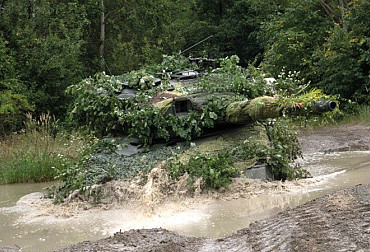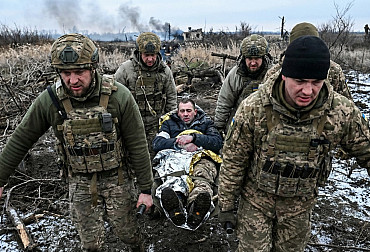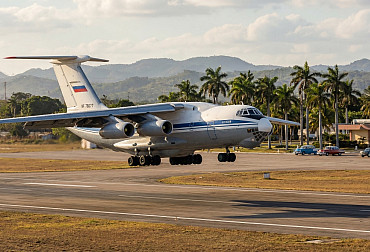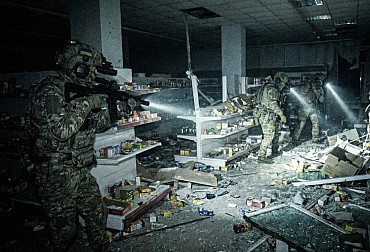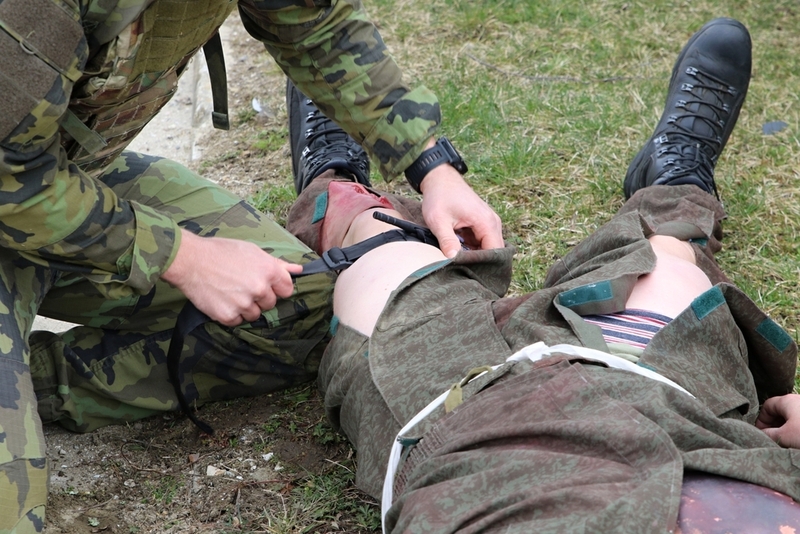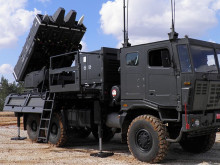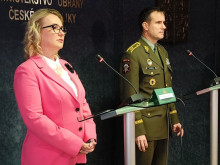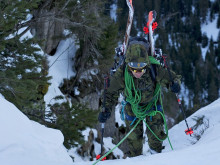Medical Staff from Strakonice Embark on Training under Fire Immediately upon Return from the Borders
The members of the 25th Anti-Aircraft Missile Regiment's dressing station have been really busy the last few days. Up until Sunday, March 15, they stayed at the Strážný border crossing where they examined people with symptoms of the viral disease COVID-19. The Strakonice crew begun a special medical training called CLS (Combat Lifesaver) the very next day. Its aim was to teach the soldiers how to provide first aid in combat conditions.
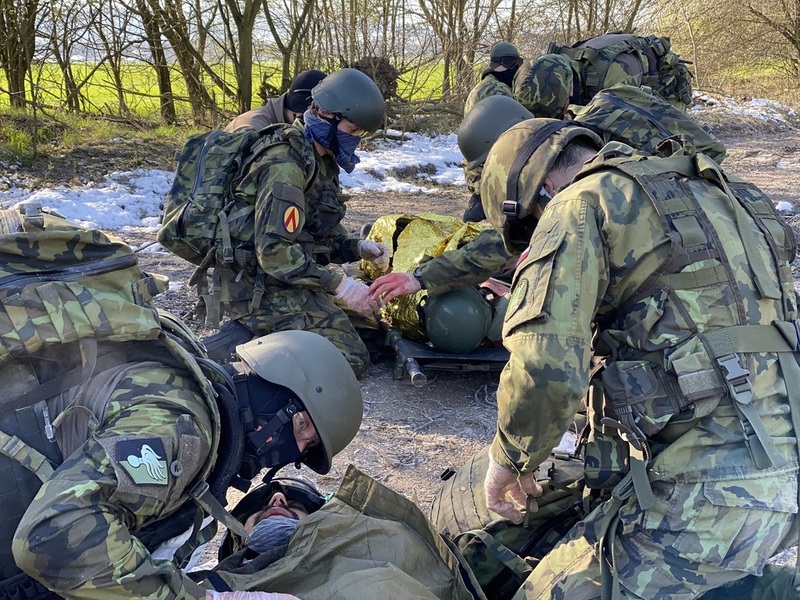
Picture: Preparing the wounded for transport | army.cz
“The medical staff situation in the dressing station is relatively good at present. But we are in dire need of drivers. We took turns during our work at the Strážný border crossing and during the CLS training so we could manage,” said Master Sergeant Marek Pflug, one of the Strakonice medics.
The CLS course, as well as other recent training activities, has been conducted under strict hygiene measures. All the soldiers wore face masks and frequently disinfected their hands and the equipment used during training. The advantage of this course is that even under normal conditions it is attended by a small number of soldiers, so instructors can fully attend to them.
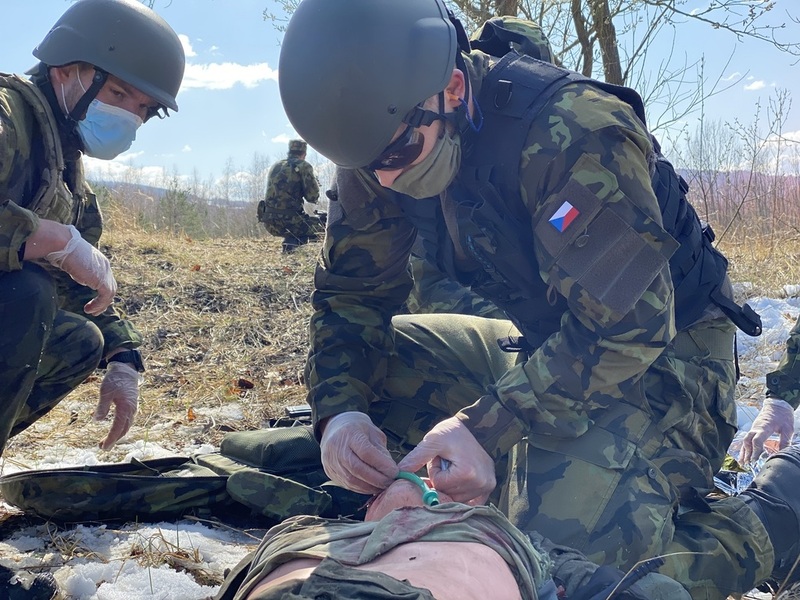
Picture: Using nasopharyngeal airway to clear the airways | army.cz
The skills of trained soldiers are changing
The special medical training prepares soldiers to be able to provide primary emergency care, even if they do not have medical education. Their competence varies depending on their experience in the combat environment.
“The concept of the CLS course is based on the statistically most common causes of soldiers' death that can be effectively tackled on the battlefield. These have for decades included massive bleeding, tension pneumothorax or airway obstruction. According to the TCCC (Tactical Combat Casualty Care) system, military personnel are divided into several categories, which differ in the scope of their competencies. CLS course graduates will no longer be allowed to perform some invasive procedures they may have applied in the past. This will create more space for the much needed drill and practice in the courses,” explained Lieutenant Jaroslav Duchoň, who is the guarantor of the CLS in Strakonice.
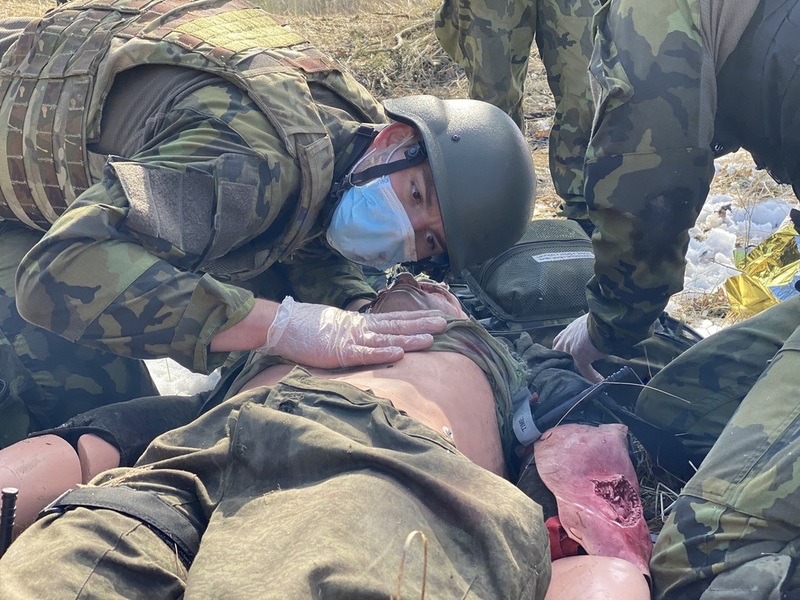
Picture: Checking for breathing of the wounded | army.cz
Soldiers trained under stress and under fire
Corporal Matěj Němec confirmed the demanding character of the course. “The hardest thing is to use the knowledge in a stressful situation and follow all the procedures in the correct order. We practised situations that may arise during the performance of tasks in foreign operations. The soldiers treat the wounded under fire, they must provide them with urgent first aid and quickly transport them to safety,” Corporal Němec described.
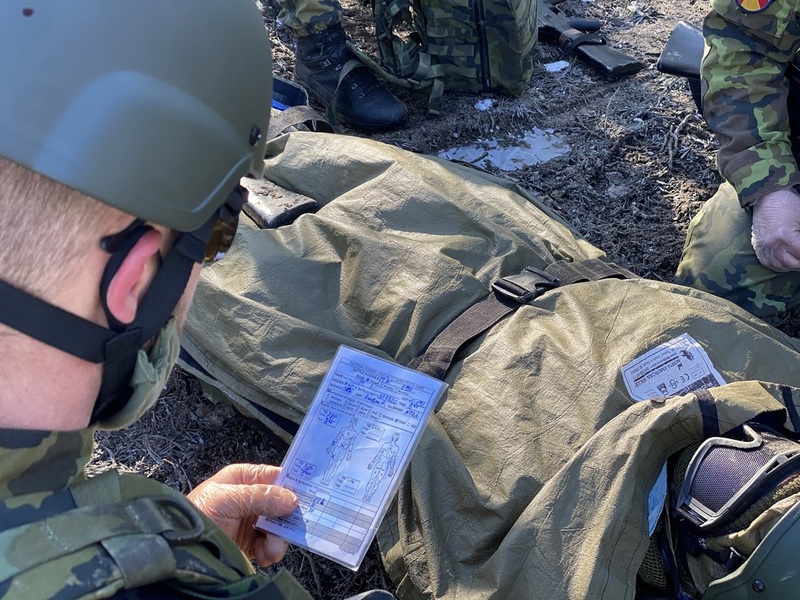
Picture: Preparation of the patient's medical records | army.cz
As a member of the Czech Army Honour Guard, he usually organizes various protocol events, participates in reverential and commemorative acts or ceremonial processions. Yet training under fire was not at all foreign to him and he did well. "I am grateful that I got to take this course and could expand my knowledge about the issue of providing first aid in combat conditions," added Corporal Matěj Němec.











